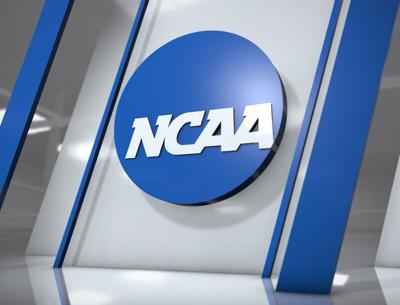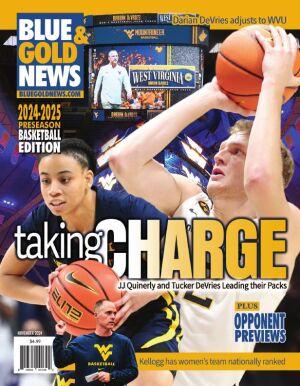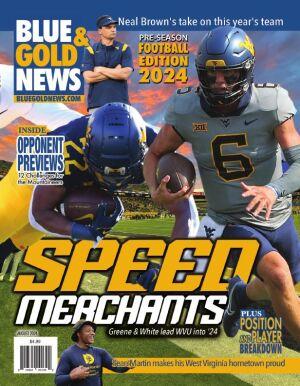MORGANTOWN, W.Va. – There are two possible rule changes that could impact the eligibility of college student-athletes in the future.
One would allow all NCAA student-athletes a straight five years of eligibility. That rule would not permit any redshirts like the current four-to-play-five situation. It would simply enable every student-athlete five seasons of eligibility and five years in which to use them.
The other rule change is coming down because of a court judgment that stipulates that any years a student-athlete spent in junior college before moving on to an NCAA institution should not count against his/her NCAA eligibility clock. Thus, an individual could have spent a couple of years in the juco ranks and then transfer to a four-year college, where that student-athlete would still be a true freshman.
West Virginia basketball coach Darian DeVries was recently asked for his opinion on both possible eligibility changes.
“It’s certainly out there, and I do think there is some traction to it, though how much I don’t know for sure right now,” said DeVries of the five-in-five proposal. “As with everything that’s going on with the NCAA, there are so many lawsuits coming from everywhere. It’s certainly something that’s been talked about and discussed. It wouldn’t surprise me if it ends up in that space, but it’s not there yet.”
NCAA leaders are looking at adopting the “five-in-five” proposal, but the rule is still in the discussion stage. The version that seems to be talked about the most would eliminate all redshirts and waivers that have allowed some student-athletes to participate in not just five but as many as six or seven years of college athletics. That would likely go away if the “five-in-five” rule is approved.
If this new eligibility rule is adopted in time, it could impact DeVries’ 2025-26 basketball team, especially in the case of Javon Small. Currently a fourth-year senior, Small spent his first two college seasons at East Carolina and then one at Oklahoma State before transferring to WVU this past summer. Under current NCAA rules, Small is completing his college eligibility this year, but if the NCAA adopts the “five-in-five” model in time, he could compete at the college level again in 2025-26. Fellow Mountaineers Tucker DeVries, who may end up taking a medical redshirt this year anyway, and Haris Elezovic are, like Small, fourth-year seniors as well who could get another year of college eligibility if the “five-in-five” rule is adopted. The five other seniors on this season’s West Virginia men’s basketball team – Eduardo Andre, Jake Auer, Toby Okani, Jayden Stone and Joseph Yesufu – are already fifth-year seniors, so the basic proposed “five-in-five” model would not permit any of them another year of college eligibility.
“I don’t know how the timing of it will all shake out, but there is certainly some talk of it,” said DeVries.
The current WVU basketball roster doesn’t feature anyone who previously spent time in a junior college, but that eligibility change could impact future Mountaineers, as well as the way DeVries and his staff recruit the juco ranks.
A Tennessee court granted an injunction in favor of Vanderbilt quarterback Diego Pavia. After two seasons (one being an eligibility-free Covid year) at New Mexico Military Institute, which is a public military junior college, Pavia spent two years at New Mexico State and then transferred to Vanderbilt for the 2024 season. He helped lead the Commodores to a 7-6 record, which included an upset of Alabama.
Normally Pavia would have concluded his NCAA eligibility after Vandy’s 35-27 victory over Georgia Tech in the 2024 Birmingham Bowl, but he took his case to court, claiming his junior college years shouldn’t count against his NCAA eligibility status. In November, the court agreed that the NCAA eligibility rule in regard to junior college transfers violated the Sherman Antitrust Act.
For now, the NCAA is allowing not only Pavia but other former junior college student-athletes in his situation the opportunity to continue playing in college in the 2025-26 athletic year, though the NCAA is appealing the court ruling in hopes of getting that injunction overturned after 2025-26.
If the rule stands on a permanent basis, though, it could significantly change how both athletes and coaches view the juco ranks.
“I have a couple of former junior college players who are wondering if they can come back. Heck yeah, come on,” chuckled DeVries recalling previous rosters before he arrived at WVU last spring. “It will be interesting to see how that plays out long term. Do more people now want to attend junior colleges because they can play there for two years and not lose any eligibility where before maybe they were going the prep school route? I don’t know how it plays out, but certainly for a lot of those kids, there are now could be two extra years of opportunity.”
This is all part of the ever-evolving world of college athletes.














Post a comment as Anonymous Commenter
Report
Watch this discussion.
(0) comments
Welcome to the discussion.
Log In
Keep it Clean. Please avoid obscene, vulgar, lewd, racist or sexually-oriented language.
PLEASE TURN OFF YOUR CAPS LOCK.
Don't Threaten. Threats of harming another person will not be tolerated.
Be Truthful. Don't knowingly lie about anyone or anything.
Be Nice. No racism, sexism or any sort of -ism that is degrading to another person.
Be Proactive. Use the 'Report' link on each comment to let us know of abusive posts.
Share with Us. We'd love to hear eyewitness accounts, the history behind an article.